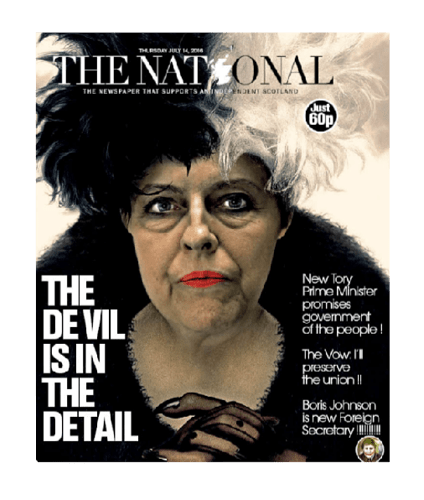Happy to hold my hand up. In fact, my only concerns relate to whether we’ll actually see a proper Brexit, or if some fudge is enacted like membership of the EEA – as mentioned on the show, this would absolutely be the worst outcome, with financial contributions only slightly lower, acceptance of free movement, and the minimal amount of influence we currently have over EU decision making removed.
I wouldn’t have been able to write this post – even just a week ago – without somebody wanting to rehash the campaign arguments and getting extremely angry about the lies and misinformation spread during it. And there was plenty of that. From both sides. But things are slowly moving on, and most remain voters publicly appear to have reached at least the bargaining stage of the Kübler-Ross model.
Clearly one of the reasons that the vote came as such a shock to many is that they are so out of touch with the reality of daily life for many in our country. Most working in tech – like those in the mainstream media – are pretty affluent, and only see the personal upside of the economic model that’s been in global ascendancy since the '80s. But, and outside of their social circles, are millions who either haven’t directly benefited, or don’t perceive that they have. And remember that we don’t judge ourselves by our absolute wealth – which may well have broadly increased for all in the last 40 years – but by our relative wealth, by how we’re doing in comparison to others. And in those terms, life really does look pretty bleak for many. This is largely why the remain ‘Project Fear’ campaign failed to cut through among this section of the electorate – if life feels bad already, dire threats of it getting worse simply won’t cut it.
That’s not to suggest that there won’t be negative short/medium-term economic impacts of the vote. I believe there will be, and we’re seeing some already (although the Pound was overvalued previously, so some correction is welcome). However, I believe – and this was a factor in determining my vote – that in the long-term our economy will benefit from our collective decision and the freedom now available to pursue opportunities outside of a sclerotic European economy. But I’m happy to grant that this is purely (hopefully informed) speculation, and only time will tell.
Congratulations to @sil for attempting to present a balanced picture, despite his stated bias, and in particular for calling out some of the memes like ‘buyer’s remorse’ that post-vote polling have shown to have little validity, despite media attempts to tell a different story.
On a slightly different tack, I’d be interested to know whether the outcome of our recent vote has caused the BV team to re-think their implacable belief that Clinton will triumph come November? Many of the socio-economic factors that figured in the result here are also at play in the USA and, whilst it can be hard to see past the comforting (and confirming) media caricatures of the campaign protagonists for those in an affluent liberal bubble, I suspect that you may all be in for a rather rude awakening.

 .
.